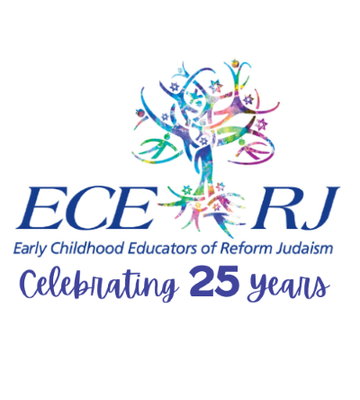
By Miriam Beloglovsky
When I envision the design of an early childhood play ecosystem, I begin with the notion of belonging. What will create a sense of place for the children and adults spending time in this ecosystem? What values guide all the practices in the ecosystem (physical, temporal, socio-emotional, and community)?
Early childhood ecosystems are places for learning, healing, playing, and gathering. They are places where children can explore and solidify their identities, including their ethical identities and their relationship with peers and adults. Tikkun Olam inspires us to design ethical and just places grounded in Mitzvot and Tzedakah to promote equality and inclusion.
Imagine...
- Ecosystems grounded in empathy and understanding values promotes playfulness as an attitude of freedom, imagination, and joy!
- Ecosystems rich in possibilities for curiosity and discovery.
- Ecosystems where children and adults get lost in play and wonderment.
- In ecosystems where labels and disabilities do not exist, adults see children as full of potential and with a deep desire to grow and succeed.
The question that often emerges from many educators is, “Where do I start?” Start by imagining a place where you belong and what it means to you, the children, and their families.
Imagine that you belong to a place where you can…
- Be your authentic self
- Wonder and play
- See your cultural values represented
- Explore your identity
- Be inspired by the beauty in the space
- Find peace, joy, and playfulness
- Build interdependent relationships
- Appreciate your family and cultural values
- Evaluate concepts of social justice, equity, and inclusion
Begin with a reflective conversation about the meaning of each of the tenets listed above, and carefully define them so that there is a clear understanding of their meaning.
Part of the reflection may include the following considerations:
We are social beings that thrive when interacting with people. We seek friendships and learn best in the context of social interactions. Designing spaces for collaborative play and quiet refuge where small children can be together and build friendships.
We belong when we can follow our ideas and interest. We learn when we have a purpose and are supported by a strong sense of connection to the ecosystem. The temporal space is designed to invite observation and reflection for educators and also for educators and children. There is value in long-term investigation and time to revisit emerging ideas and interests.
Learning happens when we actively engage in the world we inhabit. We learn when our contribution is respected, and we know we are valuable community members. Design a social-emotional space focused on the values of peace. Recognize that we all have big emotions and the need to express them. As educators, paying careful attention to feelings and emotions, it is essential to have an awareness of the languages children (verbal, artistic, or behavioral) use to express their feelings. Such an awareness can help us practice attentive listening rather than critical listening. Attentive listening demonstrates to children that we value them and respect their feelings and contribution to the community.
Making meaning of the world we live in leads to more profound knowledge. This happens best in the context of a learning ecosystem. When spaces are designed to offer children unscripted materials, educational media, and tools to express and explore their thinking and ideas, they can give meaning to what they are experiencing.
The Jewish principles of Tikkun Olam, Tzedakah, and Mitzvot can help us guide the design of early childhood play ecosystems to engage children in being active participants in social justice and to become the leaders that can truly create a more hopeful, democratic, and sustainable world. Children have the empathy and compassion to engage in conversations about social action and their ethical responsibility to help repair the world. We must weave these values into all our practices and pedagogy intentionally. This will require us to reflect and give meaning to our individual and group understanding of these essential principles. To define them and collect the data (evidence) that they are anchoring our practices. Only then can we be confident that we have designed an early childhood ecosystem anchored in joy and respect for humanity and the beautiful world we inhabit.

